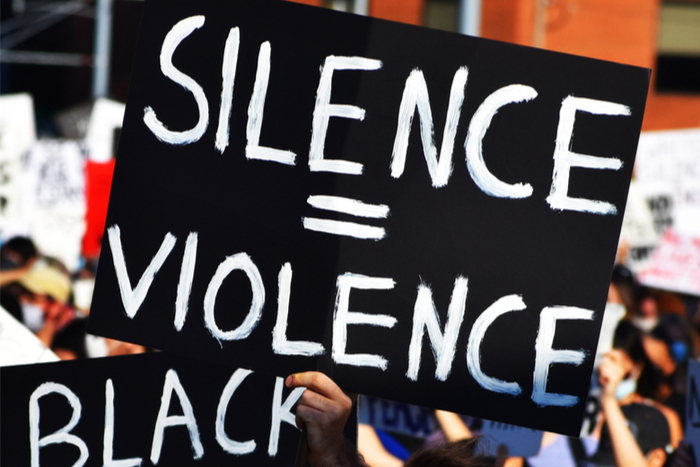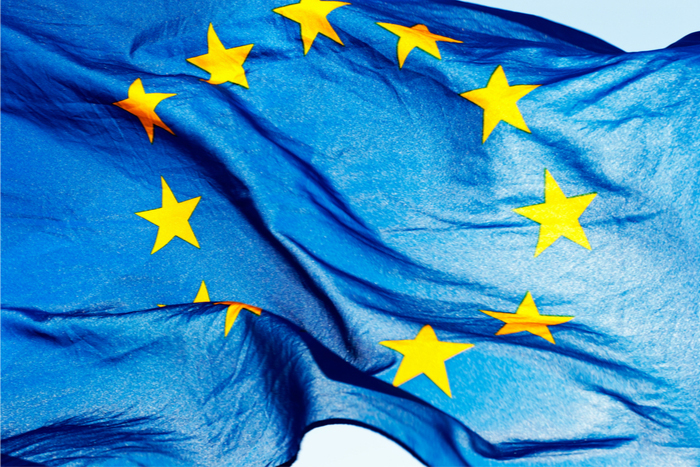Recent events have once again posed questions about the role of business in society, particularly when it comes to issues of systemic discrimination and inequality. Business speaking out on issues of human rights is not a new phenomenon—I remember this from my time at The Body Shop 20 years ago—but there does seem to be much more of it about these days.
How seriously should we take this? Is there a real trend emerging? Or is it just virtue signalling in order to grab market share?
Here are some of my personal thoughts as I take up the role of co-chair of the World Economic Forum’s Global Future Council on Human Rights.
Marking 25 years since the Ogoni Nine
The execution of activist Ken Saro-Wiwa and eight others by the Abacha military regime in Nigeria in November 1995 was an event that, for many, marked the beginning of the business and human rights agenda globally, because of the incident’s links to a multinational company. Nearly 25 years on, it is a good time to reflect on whether business can ever be an effective advocate for human rights.
Ken’s struggle for human rights for the Ogoni people and environmental protection in the Niger Delta region was also a struggle against oil companies, in particular Royal Dutch Shell. Whatever the company did or did not do behind the scenes, many feel the company could and should have raised its voice much more publicly to save the Ogoni Nine.
The irony is that Shell was one of the first companies in the world to develop ethical business principles in 1976, but these seem to have counted for little when it came to the security of assets on the ground in Nigeria. In fact the author of the principles, Sir Geoffrey Chandler, became one of Shell’s most active critics during the 1990s when he chaired Amnesty International’s first business group.
If Ken Saro-Wiwa’s death is the yardstick, are businesses today likely to behave any differently to the way Shell did then? Are they more likely to follow the example of The Body Shop, which campaigned for the work of human rights defenders such as Ken Saro-Wiwa throughout the 1980s and 1990s, publicly trying to save him from death when Shell remained much quieter? The Body Shop did this even though the company had no business interests in Nigeria.
These are some of the questions a group of 30 representatives from business, civil society, trade unions, and inter-governmental organisations will be tackling over the next year, as we share experiences from a range of business advocacy efforts and reflect on how this experience should inform what companies can and should be doing to actively promote human rights in the world today.
I’m pleased to have been asked by the World Economic Forum to co-chair this new Global Future Council on Human Rights and I look forward to updating on its progress as our conversations develop over the coming months.
As we begin our work, we should start by looking back.
Corporate advocacy for human rights
One of the legacies of the 1990s are the plethora of multi-stakeholder initiatives that have emerged to tackle “governance gaps” relating to different aspects of the business and human rights agenda.
Most closely associated with cases such as Nigeria are the Voluntary Principles on Security and Human Rights, focused on preventing human rights abuses by public and private security in relation to the activities of extractive industries. Many other initiatives have also developed over the past two decades addressing a range of human rights challenges for specific sectors, from apparel to finance to tech.
Most of these initiatives haven’t focused on the corporate “advocacy” role as such, but instead on clarifying standards of corporate human rights performance and seeking to monitor progress and strengthen accountability. They are nevertheless important milestones in efforts to address the role of business in promoting and protecting human rights around the world.
Today, most corporate advocacy for human rights takes the form of “collective action”, and collective leverage can have significant results—not all of which are easily measured or even publicly disclosable. But is this enough? The United Nations Guiding Principles on Business and Human Rights set an expectation that businesses will use individual and collective leverage to minimise negative human rights impacts even when only directly linked to specific abuses (i.e. not causing or contributing to them).
So, we must continually ask the question, what more can be done?
When should business advocate for human rights?
Are there ways to help businesses play a responsible role even when not linked at all to the abuses in question, but where they see a wider interest in defending civil society, the rule of law or specific rights like freedom of expression?
Societal expectations are challenging business
Businesses are continually being challenged on critical societal issues, such as #MeToo, Black Lives Matter, LGBTI rights, or the response to Covid-19. The demand for business involvement is not always framed as a human rights issue, yet the examples above all relate to core rights issues of discrimination, inequality, entitlement and vulnerability.
Businesses have responded in a myriad of ways. But is it part of a new normal?
Should businesses no longer try to bend societal interests to justify their own business model but rather ask deeper questions about how business itself needs to respond more fully to the demands society will require of it?
In other words, have we moved beyond business ideas of “shared value” and more into defining a new social contract for business itself? In particular, what should businesses do when governments themselves are unwilling or unable to play a responsible role in protecting the human rights of all of their citizens?
I wonder what my former boss Dame Anita Roddick (founding CEO of The Body Shop) would have said about these issues if she had still been with us today. I think she would have warned me about co-option, but she would also have urged me to embrace the opportunity of working with the World Economic Forum and this group of colleagues to shake things up a little. WEF does provide a unique platform for raising issues across global business and calling issues to the attention of governmental leaders.
In the months ahead, I hope we will not only develop useful recommendations on responsible human rights advocacy, but also challenge businesses to think about how their own governance could better align with evolving societal expectations. The boardrooms of nearly all major companies around the world still reflect the dominant groups (usually privileged and often male) and not those in society that are the focus of much of this new corporate advocacy.
If we are seeing a more permanent shift in which business finds ways to increase its leverage on addressing societal issues, then business governance needs to be better reflect this as well. Boards will need a new set of skills and experiences.
The challenges are many, but so are the opportunities to make progress.
John Morrison is CEO of the Institute for Human Rights and Business (IHRB) and co-chair of the World Economic Forum’s Global Future Council on Human Rights.
This article first appeared on the IHRB’s website and is reproduced with permission. Read the original article.





